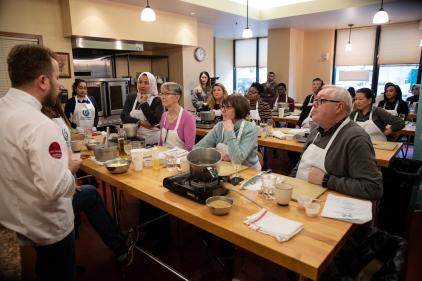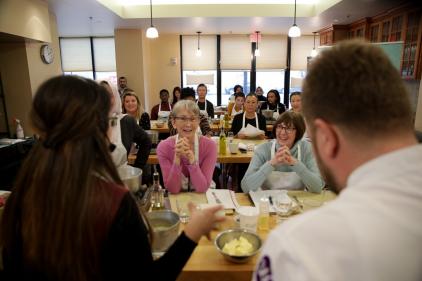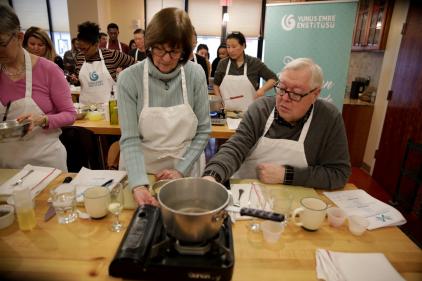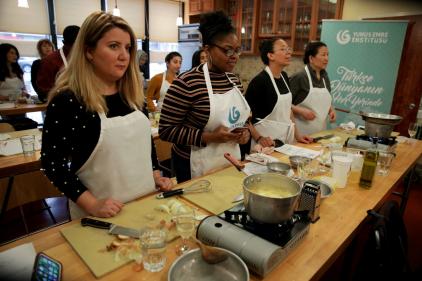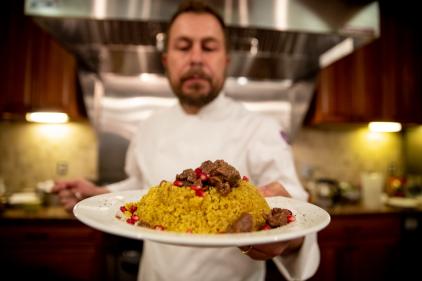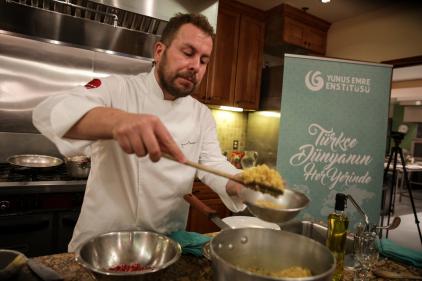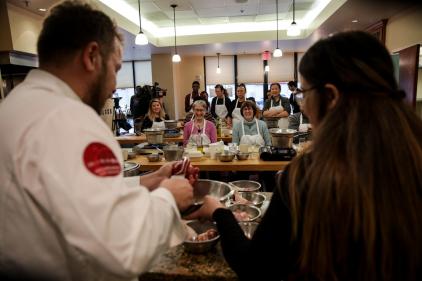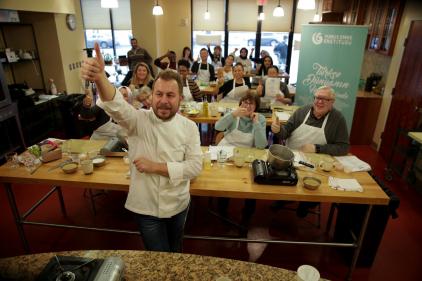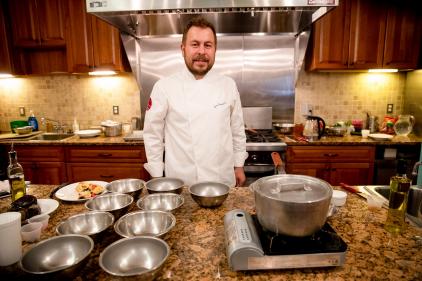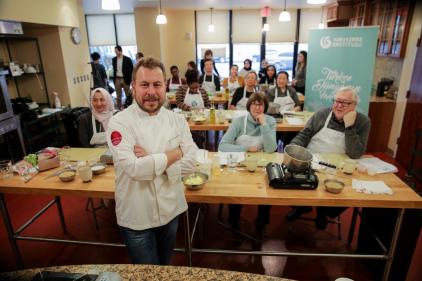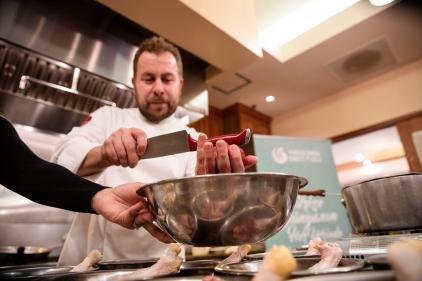Ottoman Cuisine Introduced in Washington
On December 20, 2018, Yunus Emre Institute hosted world-renowned chef Yunus Emre Akkor for an afternoon of intrinsic Ottoman cuisine and culture. Chef Akkor is the gourmand book awards winner and chef for the Turkey Ministry of Culture. For over 20 years, he has honored and preserved Ottoman culture by incorporating lost dishes from the Ottoman Empire throughout his culinary career. During this event, guests were able to experience the unique taste of Turkey through a rich, five-course meal menu of almond soup, eggplant with tulum cheese, honey sharbat, turmeric bulgur wheat meal, and crushed chicken kebab. Each carefully picked recipe revealed the secrets of timeless history and zesty flavor.
The session began with the preparation of a 15th-century savory almond soup recipe that perfectly blended the subtle flavors of almonds, carrots, and celery. Once the guests completed the dish, they moved on to mixing together thick tulum cheese, parsley, olive oil, and an egg yolk to create the topping for the 18th-century dish, eggplant with tulum cheese. As the class mixed the ingredients and applied a generous heaping of the mix atop of thick eggplant slices, Chef Akkor explained that the favorite vegetable of Turkey, the eggplant, was introduced in the 15th century but was only cooked by boiling for 200 years. When the preparation was finished, the eggplants were set to bake in the oven and Chef Akkor began to make the oldest beverage recipe, honey sharbat.
The honey sharbat is a classic beverage that made a big impact during the 17th century in not only Turkey or the Ottoman Empire, but in England, Italy, and France as well. The drink was very important in early Islamic religion as the Prophet Muhammed. The chef listed its healing properties and highlighted the importance of using real honey to make the sorbet.
With the lively atmosphere, the mouthwatering aroma of food, unity, and neighborly partnership, the diverse group of individuals were able to immerse in the Turkish cultural activity. Turkish culture believes in using food as a connection to building long lasting friendships. Guests collaborated in pairs of two to recreate historic Ottoman dishes which strengthened the cheerful and educational experience. Through food, laughter, and many photos, individuals of different cultural backgrounds were unified in their experience to appreciate aspects of the Turkish culture.
In the end, the students were able to prepare the meals themselves. The participants learned about the origin and the nutritional values of the foods while learning the techniques of the preparations. They expressed their curiosity and enthusiasm to learn through questions and Chef Akkor was there to answer and give further clarifications. After learning to make the Turkish cousins, participants sat down together to eat the food they have cooked.
Through this event, Turkish culture and tradition were introduced by teaching students how Turkish Cuisines could be prepaid. Despite their nationality, background, and color of the skin, the event was able to introduce peace and togetherness through culinary diplomacy. The event created a cross-cultural understanding of people from different works of life toward achieving a mutual corporation. It created an atmosphere of peace and bridged international divides.
The participants were excited to be part of the event as they praised the uniqueness of the Turkish culture.

